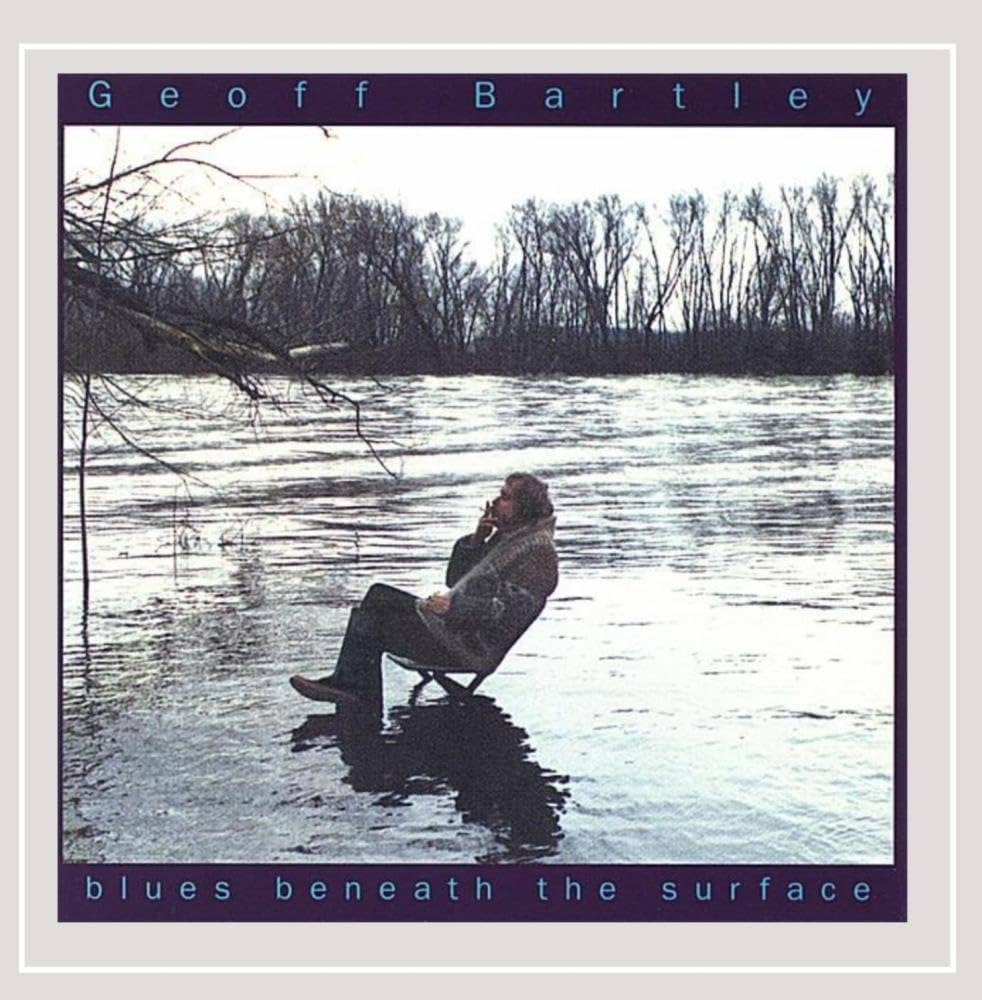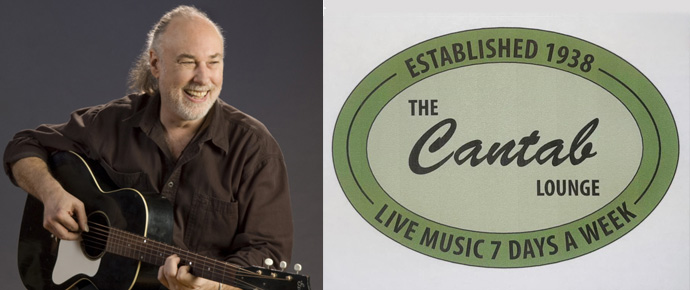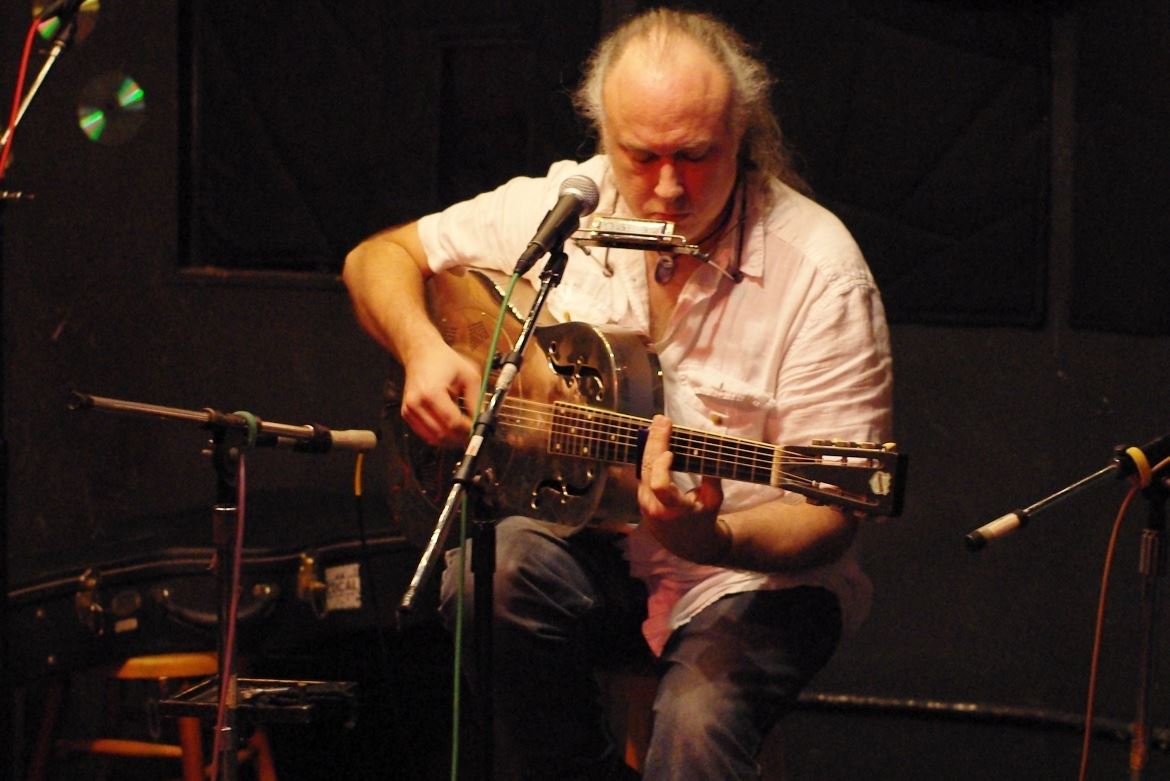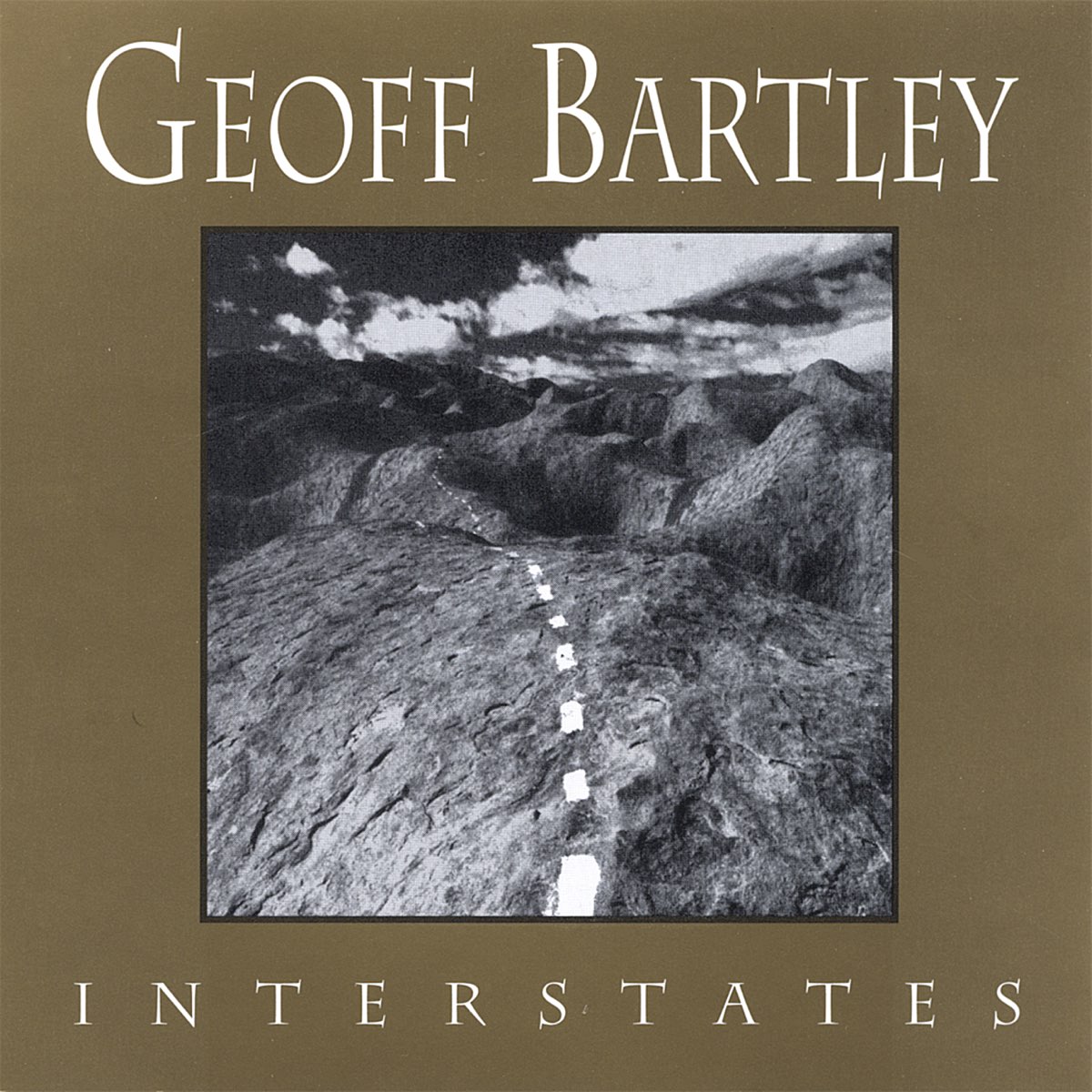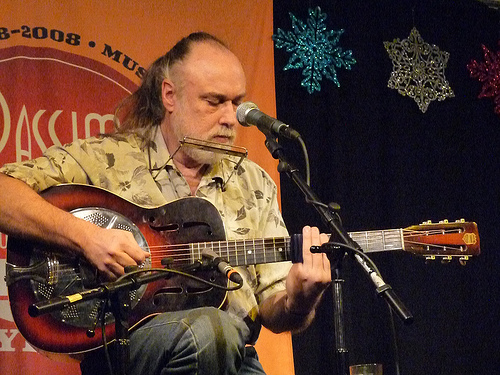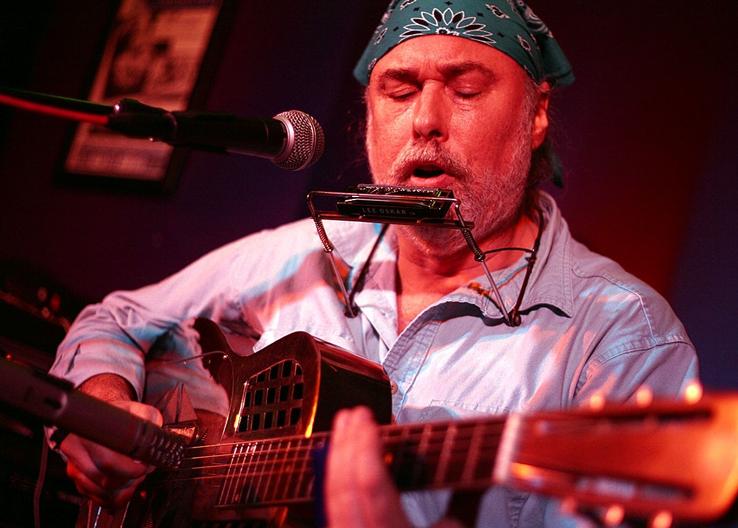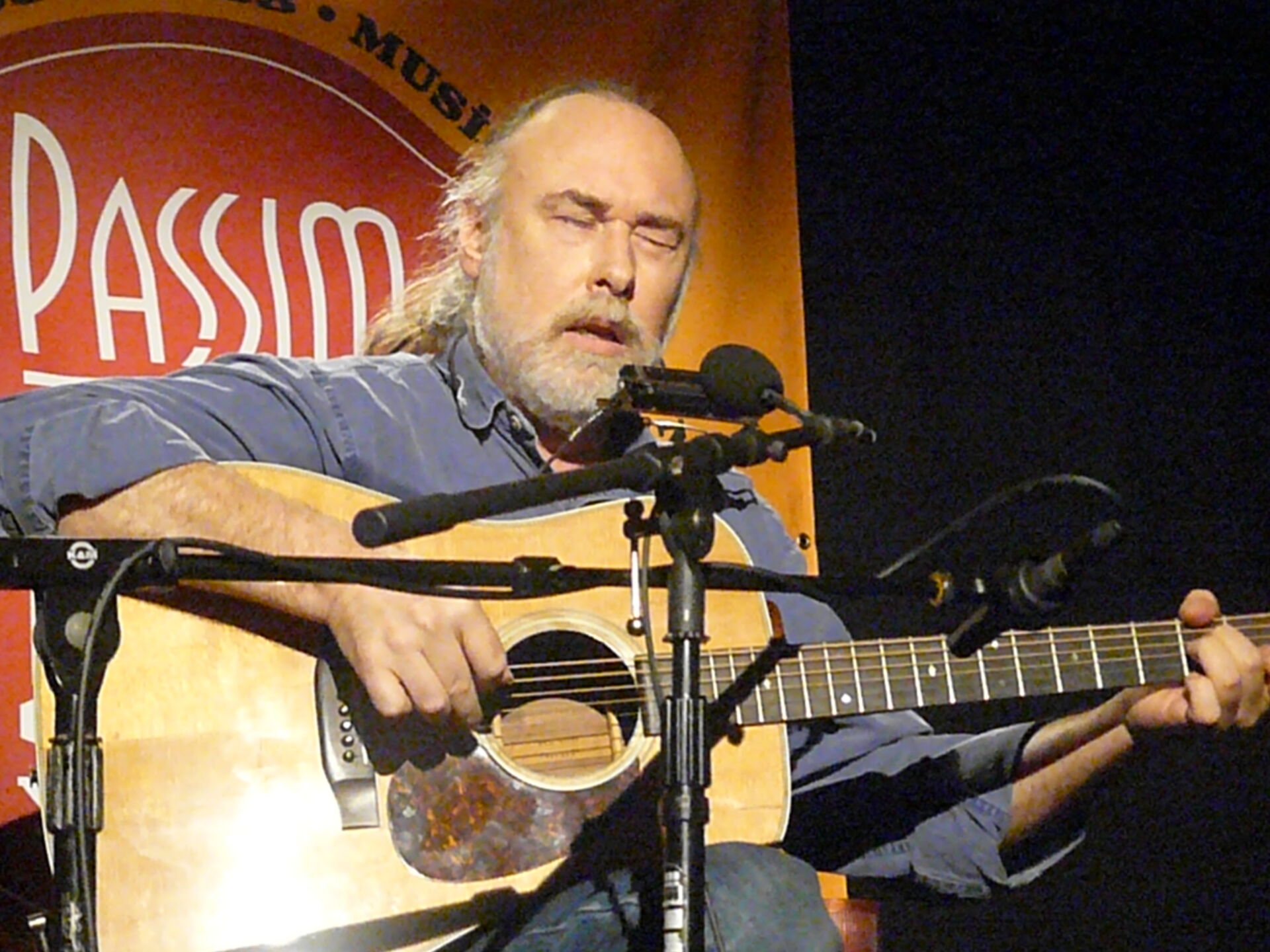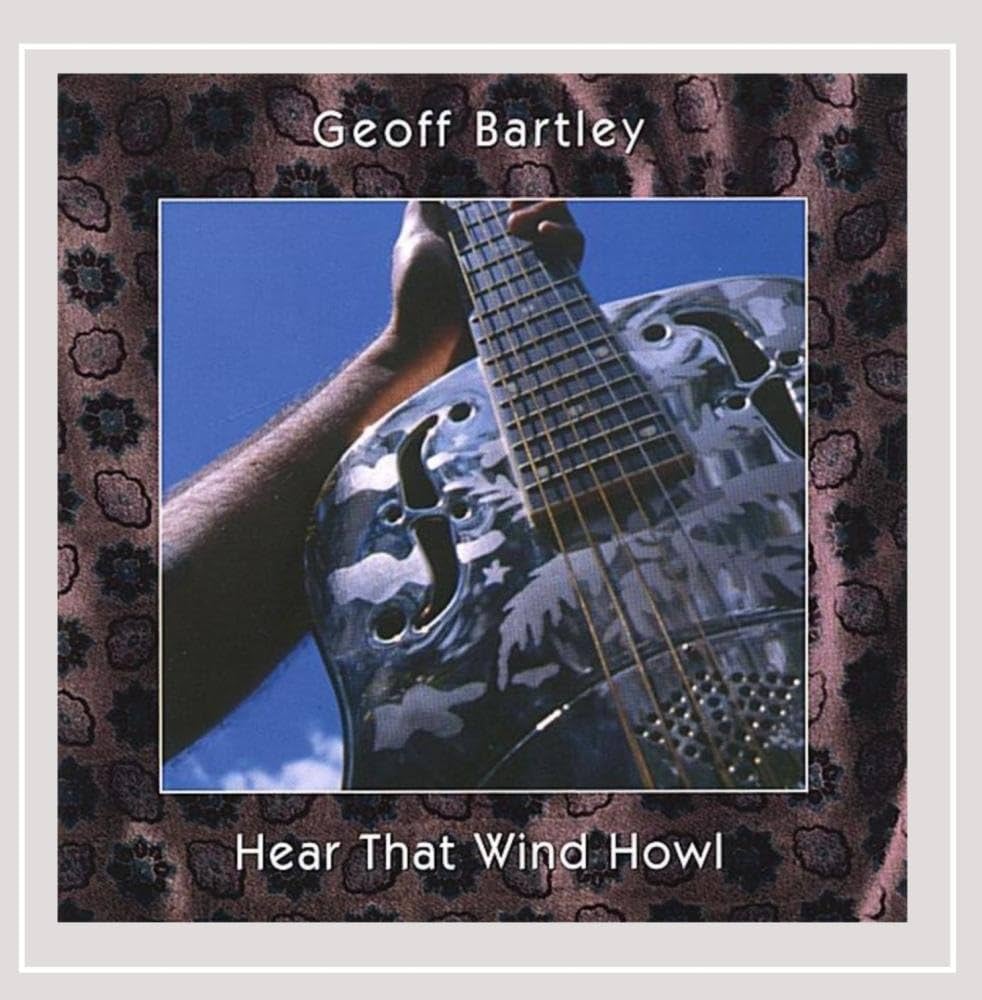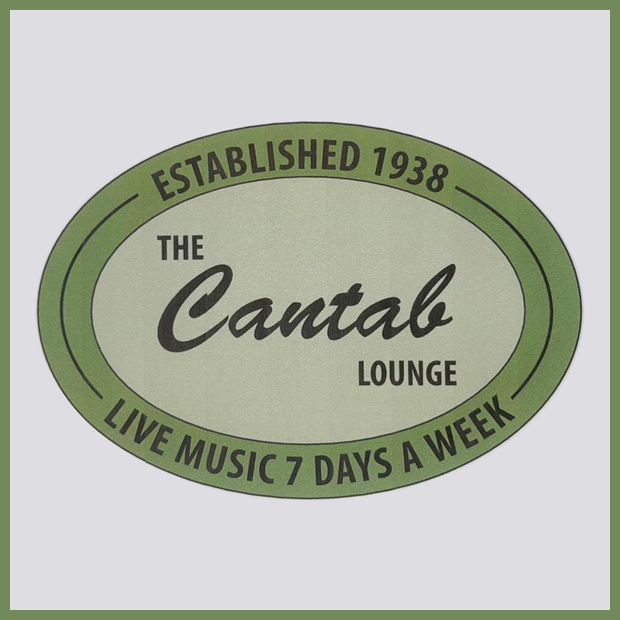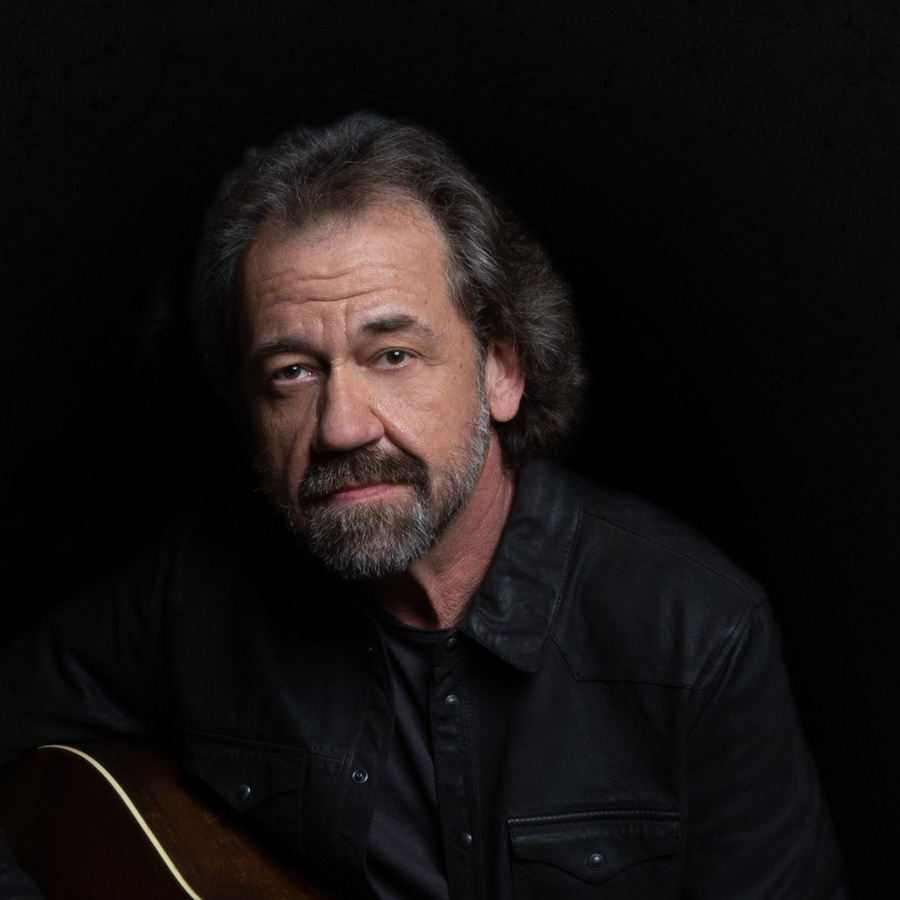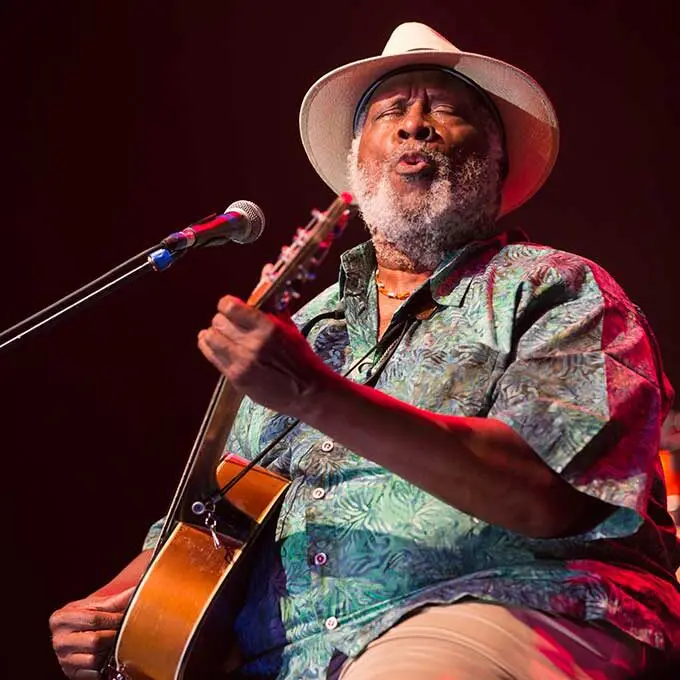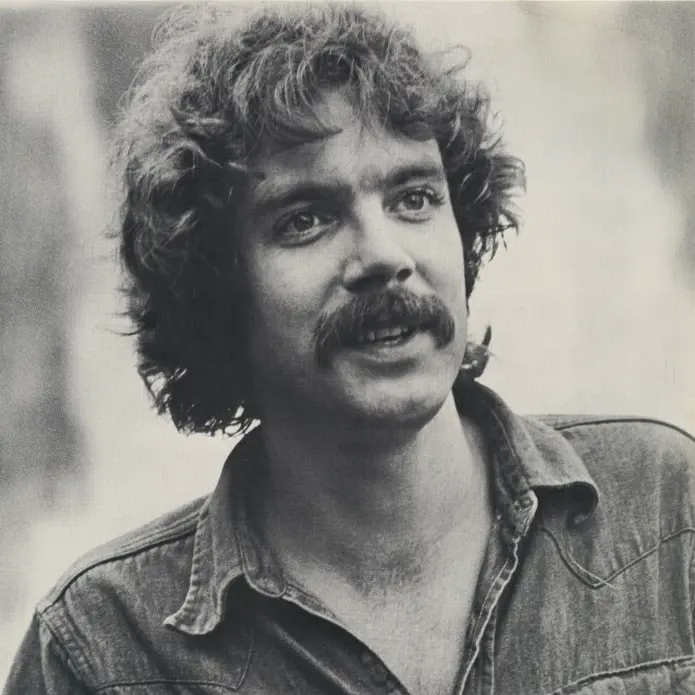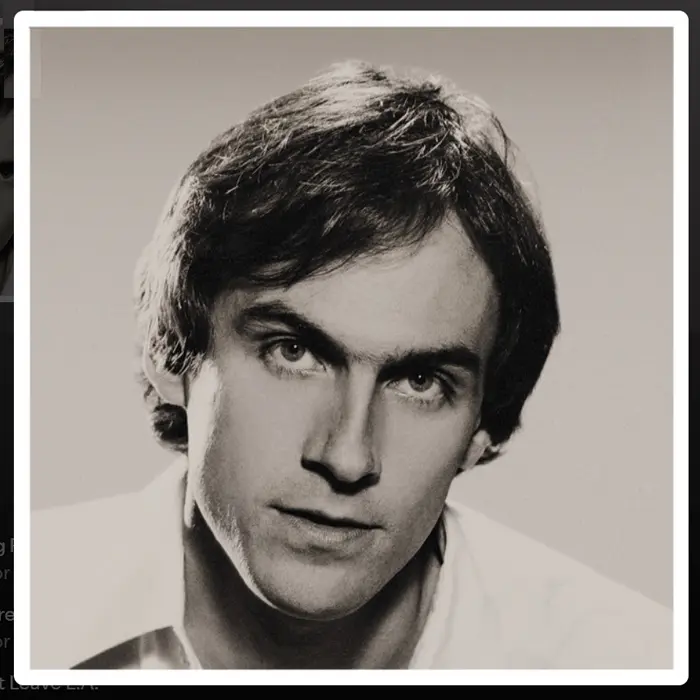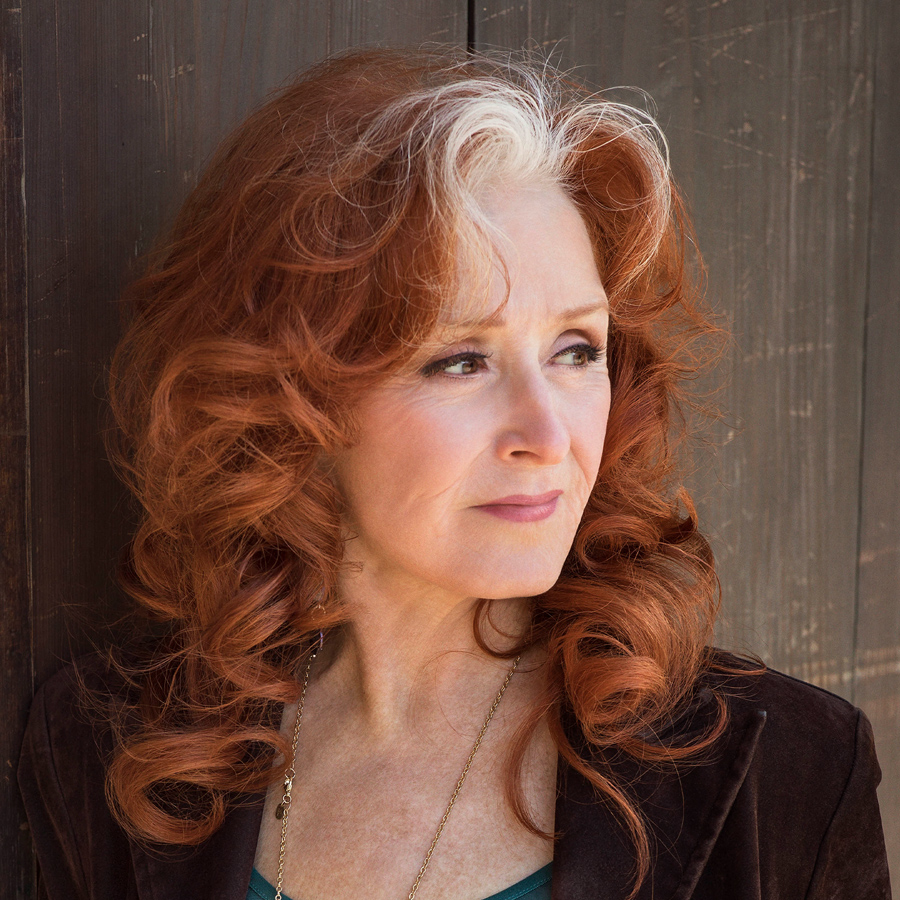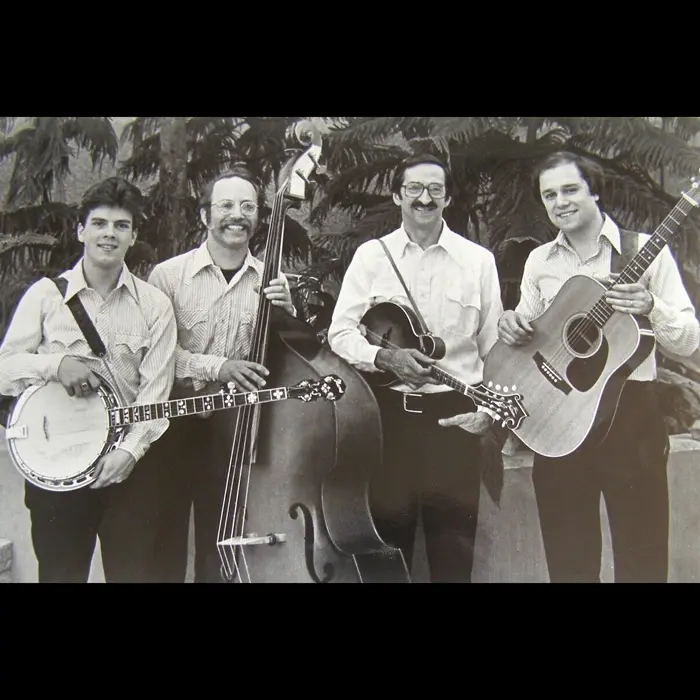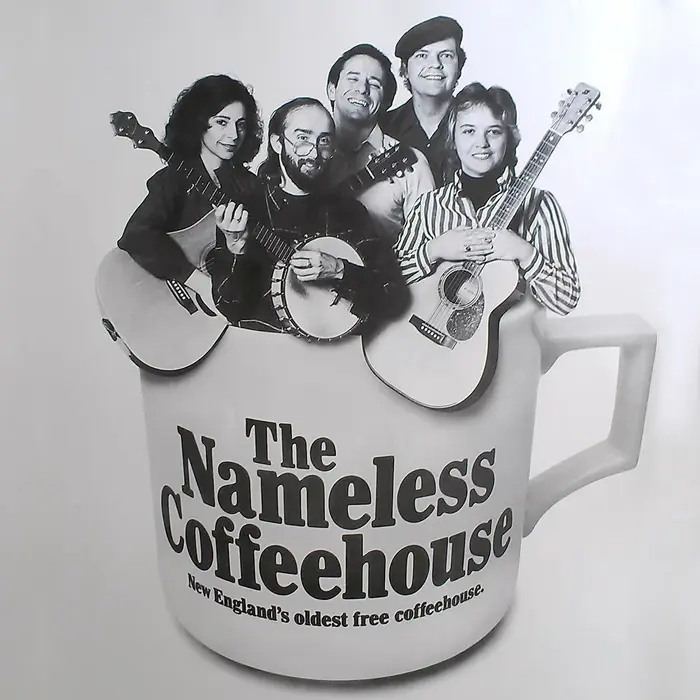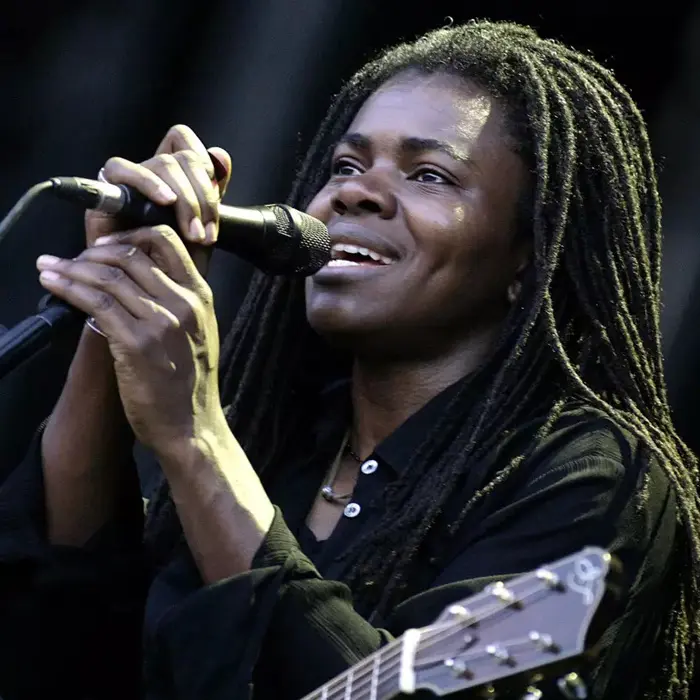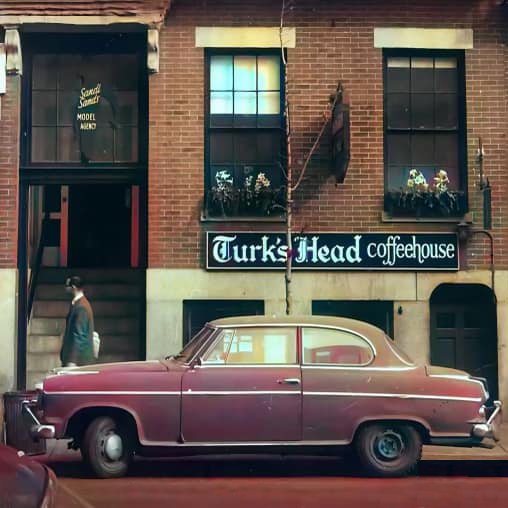Geoff Bartley
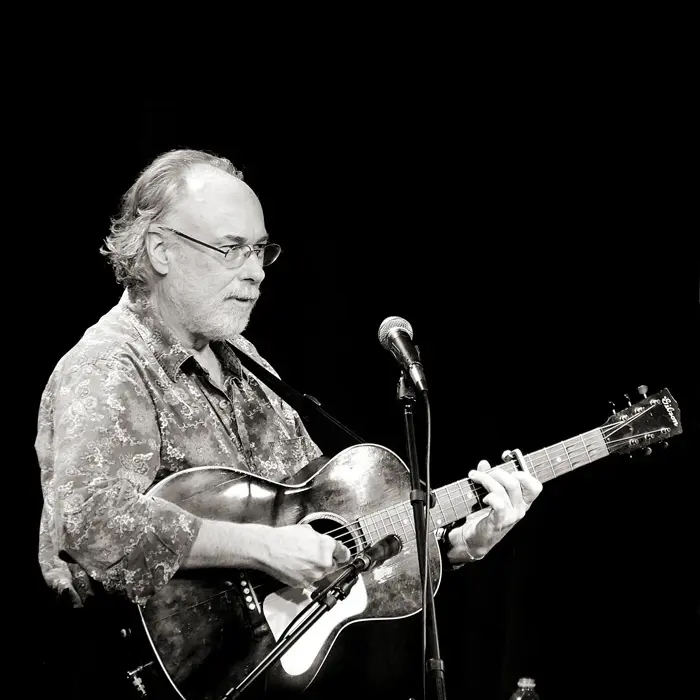
He’s been called “the spiritual godfather of the Boston folk scene.” He’s won the Podunk Bluegrass Festival Songwriters Competition once, the New Hampshire Acoustic Guitar Contest twice and the National Fingerpicking Championship four times. He’s the recipient of a Lifetime Achievement Award from the Boston Area Coffeehouse Association and – despite insisting that he’s “not a bluegrass guy” – an Industry Heritage Award from the Boston Bluegrass Union.
And “he,” as anyone familiar with the Boston/Cambridge folk scene over the past several decades has probably figured out, is Geoff Bartley.
OVERVIEW
With his butter-smooth baritone, steady-handed style, sensational songwriting, 11 studio albums, innumerable live shows and hosting of the now-legendary open-mic and bluegrass nights at the Cantab Lounge in Cambridge – which he’s done for 30 years as of 2023 – Bartley is a guitar-slingin’, harmonica-wailin’ regional institution, an icon who, despite never having recorded on a major label, stands elbow-to-elbow with other still-active, New England-rooted, old-school troubadours like Tom Rush and Taj Mahal. With their distinctive blend of warmth and wit, his songs have been covered by a slew of other artists and licensed for film and television while Bartley has been instrumental in starting and shaping the careers of an entire generation of local singer-songwriters, making him a musical mentor like few others.
MUSICAL BEGINNINGS, INFLUENCES
Born in New York City in 1948, Bartley was raised in Maryland in a home chock full of classical music, both live and recorded, his mother being an amateur pianist and his father being an amateur clarinetist. He started clarinet lessons at age nine but lost all interest around age 14 when he first picked up an acoustic guitar. “I had no social life and no social skills, so I just spent a lot of time practicing,” he said in an interview with the Cambridge Historical Society in 2012.
In 1967, he enrolled at Boston University, where he listened mostly to jazz and pre-World War II acoustic-blues legends such as Robert Johnson, Blind Boy Fuller and Blind Willie McTell before further developing his own style based on what he heard from guitarists including Tom Rush, James Taylor, Bonnie Raitt, Ry Cooder, Leonard Cohen and especially Dave Van Ronk.
EARLY GIGS, INTRO TO BLUEGRASS, BLUES BENEATH THE SURFACE
In 1970, Bartley played his first paying gig, at Boston’s Turk’s Head Coffeehouse, and discovered bluegrass when his girlfriend brought him to an afternoon jam session in Harvard Square, where Joe Val & The New England Bluegrass Boys played. “I’d never heard anything like it,” he told Bluegrass Today magazine in 2016. “I think that’s probably when I got ‘inoculated’ [to bluegrass].” After appearing at other local venues like the Nameless Coffeehouse in Harvard Square, by 1973 Bartley was making a living by touring the national folk circuit relentlessly, spending months at a time on the road, which he continued to do through most of the ‘80s.
In 1983, he recorded his first LP, Blues Beneath the Surface, a 12-song effort released on his own label, Magic Crow Records, that featured both originals and covers, including his bluesy rendition of Chuck Berry’s “Nadine.” When it was reissued in 1994 by Swallowtail Records with five bonus tracks, critic Ronnie D. Langford wrote that the LP “reminds one how much fun a singer-songwriter can be when they mix fresh material, innovative arrangements and stylish interpretations.”
INTERSTATES, I AM THE HEART, FINGERPICKING CHAMPION
Bartley followed with two more self-released albums later in the ‘80s, Interstates (1986), featuring nine originals including the darkly comic “New England Towns,” and I Am the Heart (1988), a 12-song collection with 10 originals steeped in sociopolitical commentary both deadpan serious and laugh-out-loud satirical.
For four consecutive years (1984-87), he finished first in the National Fingerpicking Championship at the Walnut Valley Festival in Winfield, Kansas, his prize being a new guitar. “I didn’t go out there because of the bluegrass,” he said in 2016. “I went out there to try to win a guitar.” Also during the ‘80s, Bartley became a member of the Fast Folk Music Cooperative, a now-defunct nonprofit that helped independent artists record albums and whose other members included Tracy Chapman.
OPEN-MIC NIGHTS, TUESDAY NIGHT BLUEGRASS
In December 1991, after several years of musical inactivity and obscurity, Bartley began coordinating and hosting singer-songwriter open-mic nights at The Cantab Lounge on Mondays. By 1993, those events had become so popular that the club offered him Tuesdays as well and – since there were no weekly bluegrass events around Boston at the time and his friends encouraged him to take a chance on the genre – Bartley began his still-ongoing Tuesday Night Bluegrass events, managing the shows from soup to nuts, from booking artists and providing/running the sound system to passing a hat to support appearing acts. A number of now-established bands have appeared on the Cantab stage for Tuesday Night Bluegrass including Crooked Still, Della Mae, The Gibson Brothers and The Steep Canyon Rangers.
O BROTHER, WHERE ART THOU? IMPACT
While both the open-mic and bluegrass events saw minimal attendance for the first several years – which Bartley has attributed to the venue’s former reputation as a bar-brawl joint – these days each is regularly packed to capacity. In 2000, crowds at Tuesday Night Bluegrass increased so dramatically following the May release of the film O Brother, Where Art Thou? – the Grammy-winning soundtrack (featuring Vermont native Dan Tyminski) for which was mostly bluegrass and mountain music – that the Cantab ownership added an additional bartender and opened the basement and stairwells for impromptu jam sessions. “It was a huge boon for us,” Bartley’s said. “All of a sudden, Ethan and Joel [Cohen, the film’s writers-producers-directors] made bluegrass hip!”
Ironically, Bartley says he’s still “not a bluegrass guy” and that he’d never played a guitar in bluegrass style until starting the Cantab events. “I’m a fingerstyle player, and I didn’t play with a flat pick in a bluegrass style until those Tuesday nights,” he said in 2016. “[I was] really new to flatpicking bluegrass style [and] I’m sure I was looked down upon.”
TOM PAXTON COLLABORATIONS, MOST RECENT SOLO ALBUMS
Since 1994, Bartley has regularly accompanied singer-songwriter Tom Paxton, both live and in the studio, and in 2004 he helped design the living legend’s signature model Martin guitar. In the late ‘90s, Bartley rejuvenated his own recording career with two albums on the Waterbug label: Hear That Wind Howl (1997), a 16-track disc with four originals that critic Cub Koda called “coffeehouse music of the highest order,” and One Kind Word (1998), a 12-song LP with 11 originals.
Since 2009, Bartley has recorded and self-released six albums, including Put The Big Stone Down (2009) and Mercy for the Dispossessed (2012), both of which went to #1 in the International Folk DJ chart. Others are Bones and Breath (2003, with Timothy Mason), Blackbirds in the Pie (2008), Particles of Light (2014) and Uncle Wiggly’s Bicycle Ride (2015).
AWARDS, ACCOLADES
In addition to recording, maintaining his Cantab schedule and performing on his own, Bartley has received a host of awards and accolades over the past two decades, starting in 2004 when the City of Cambridge declared February 13th Geoff Bartley Day. In 2009, he received the Jerry Christen Memorial Lifetime Achievement Award from the Boston Area Coffeehouse Association, in 2015 he won the Podunk Bluegrass Festival Songwriters Competition held in Connecticut and in 2016 he received the Boston Bluegrass Union’s Industry Heritage Award.
COMMENTS ON NEW ENGLAND AUDIENCES
Asked in a 2012 interview why audiences all across New England have been so receptive to his variety of folk, blues and bluegrass, Bartley cited education. “I’ve been asked the same question in various ways and I come down to the same conclusion: It’s the way education is valued in this part of the world [because] that has generated deep, deep radio and deep print media,” he said. “People on the radio and in the print media here are educated. Not that the people in other cities aren’t, but it’s different here in some way.”
“People here study. They don’t go out, get blind drunk and fall down in the street,” he continued before correcting himself. “Well, sometimes they do,” he said.
(by D.S. Monahan)

